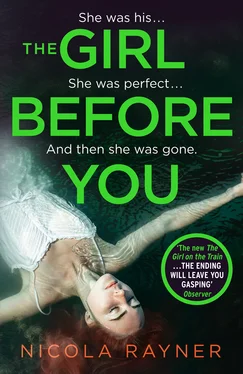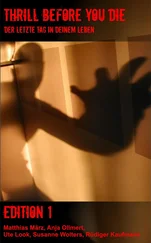It was her sense of fairness that had drawn Alice to divorce law, that the quiet work of women should be recognised. Even in her own parents’ marriage there were inequalities. Her father could forge ahead with his career because her mother had looked after Alice and her sister. Often, her father had been home in time for bedtime stories, it’s true, but then that was the fun part of childcare – not the endless rounds of washing clothes, preparing meals, packing gym kits, remembering which child had which hobby on which days, driving around the countryside, and keeping their timetables and friendships and teachers in her head.
‘What makes me mad when I think of it now,’ Elizabeth had said, pausing to blow on her cup of coffee, ‘is the way he used to talk about me. If someone asked me a question about the children, he’d say, ‘Oh, I don’t deal with any of that. Ask my wife.’ The way he said it promoted me to the most important person in his life, but also made me, somehow, not important at all. How could I be absolutely crucial and yet as irrelevant to him as hired help? It’s hard to explain.’
She hadn’t had to: Alice had seen it enough in other marriages; though, in truth, it had always been different in her own. In his favour, George never demands too much of her in the way of housework or ironing. Their cleaner, Mrs T, looks after all that. Alice organises the Ocado deliveries, remembers birthdays, writes thank-you notes. What does George do? ‘I bring the fun,’ he would say. Not to mention their house in Notting Hill, which his parents had helped with. Distasteful as it is to think about it, there are advantages to being married to George, there’s no doubt about it.
Alice tries to remember more about the party where she’d seen Ruth, but not much more comes to her. She closes her eyes and tries again, recalls, on a separate occasion, walking into the college bar with her hand in George’s, and seeing Ruth and a friend of hers, Kat, exchange a glance, not a happy one, at the sight of them. They said a few words to each other and got up to go. As they passed George and Alice, Ruth looked as if she was about to say something, but Kat tugged at her sleeve: ‘Don’t.’
‘Do you know those girls?’ Alice had asked after they’d gone.
‘What girls?’ George asked, but then he’d seen Dan and bellowed a greeting at him. And that was that.
He and Dan were inseparable. They’d come up to St Anthony’s from Eton together with Teddy and a couple of others – a gang with a point to prove, perhaps, having not made it into Oxbridge. Alice had always been quite envious of the way George had started with a ready-made group. But of all his friends, Dan had been George’s closest. They made a funny pair – Dan was tall, slim and silent, George stout and loquacious. Dan’s looks would draw the girls to them but George’s charm would make them stay.
Alice had always liked George the most. A little shy herself, she’d found it hard to know what to say to Dan and he never gave much back. Whenever George popped to the bar and left them alone, Alice would find herself tongue-tied, unsure how to interact with Dan on her own. The thing was, she thinks now, it seemed that a part of him enjoyed how uneasy she was, as if it were a game.
When George came back from the bar, he’d say, ‘How are you chaps getting along?’
And once, Dan had said, ‘Oh, we’re getting along famously .’ It was a little piece of nastiness that only Alice could appreciate.
Another time, they’d gone out dancing and Alice, after a tipple too many, started mucking around with a pole, swinging around it sexily and giggling at George as she did.
George had grinned and blown her a kiss, but he’d been distracted by the time she returned to the table.
‘Great dancing,’ Dan had said in a tone that implied he meant quite the opposite. ‘Really sexy.’
Once or twice, when George was in one of his tender moods, in bed perhaps or after a few glasses of wine, Alice might ask: ‘Does Dan like me?’
And George would look completely puzzled and say: ‘Of course, you silly thing. Why would you ask a question like that?’
But it didn’t matter what he said, because Alice always knew, deep down, that Dan didn’t – that he’d never thought Alice was good enough for George. Maybe it was that she’d gone to a state school, or that her family didn’t have as much money as George’s; maybe it was that she didn’t have George’s natural wit, or the confidence of the people who’d grown up in the same social circles as the Etonians. Maybe, she thought on some days, it was because Dan had been in love with George.
She blinks at the laptop screen. No, that was ridiculous. Dan had liked girls. Of course, he had.
But there had been such a strong connection between them, as if they shared some kind of secret. Maybe even a secret related to Ruth Walker – to why she might have hated George enough to shout at him, to leave a room when he entered. Alice sighs. She’s not going to be able to concentrate on anything else unless she does some digging. She picks up her laptop and heads to George’s study.
Kat Contents Cover Title Page THE GIRL BEFORE YOU Nicola Rayner Copyright Dedication Epigraph Author’s Note Prologue Alice Naomi Alice Kat Alice Kat Naomi Alice Kat Naomi Alice Naomi Kat Alice Naomi Kat Naomi Alice Kat Naomi Alice Naomi Kat Naomi Alice Naomi Alice Kat Naomi Alice Naomi Kat Naomi Kat Alice Kat Alice Kat Naomi Alice Naomi Kat Naomi Kat Alice Kat Alice Naomi Alice Naomi Kat Naomi Acknowledgements About the Author About the Publisher
October 1999
Dressed in black, Kat smudges her lipstick on her third cigarette. The rush of nicotine makes her feel light-headed, insubstantial. She had been so full of hope for university – had had a rather precise idea about the kind of life she was going to lead. That was why she had picked this wild town on the edge of Britain over a civilised place like London. She had packed a couple of bottles of champagne, nicked from her father’s wine cellar, and cigarettes and the Collected Works of Dorothy Parker – but she had been greeted at the gates by the freshers’ rep, a pale, gangly boy with wispy hair that stuck out in different directions. Not fanciable at all.
She could tell he wasn’t used to girls like Kat – not used to girls full stop – and it hadn’t taken much to make him blush into his tea, make his excuses and scuttle off back to his dusty textbooks. Kat had never been one for making an effort with people she couldn’t see the point of. It was something she had inherited from her father. Not a nice trait, she realised, but then her father wasn’t a very nice man.
But if she liked someone, it was another matter entirely, as if a light bulb had been switched on. It had been like that the other night in what passed for this town’s only nightclub. She’d met him a few drinks in, so she couldn’t remember exactly how things had started. There she had been, waiting by the bar, and he seemed to have appeared beside her. Messy hair, dark eyes, low voice. Soothing to be around, a measured way of speaking and holding himself. And she had felt a kind of certainty, a kind of excitement.
And admittedly, she’d had five, or maybe six, vodka cranberries at that stage, so the certainty could have just been an epiphany created by booze and a handsome face. But then she had woken up the next day early and surprisingly clear-headed, sure that something important had begun, and a couple of days later the feeling had barely shifted.
No one she’d asked knew who he was. It didn’t help that she couldn’t remember his name. He was a second year – she recalled that much – and he played the guitar in a band and could quote Dorothy Parker.
Читать дальше












